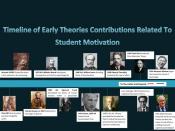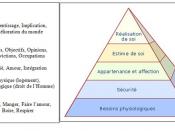Researches indicate that the main reason for an employee to leave an organization is the failure of the organization to acknowledge the employees work. Rewarding the employees for their work is quite important as motivation is the key element required for the success of an organization.
Nowadays, many organizations recognize that employees are not motivated solely by money and employee behavior is linked to their attitudes (Dickson, 1973). Staffs' attitudes always link to the following point of views: interesting work, full appreciation of work done, job security, good working conditions, promotions, and personal loyalty to employees
Theoretically, there are two aspects to motivation techniques intrinsic and extrinsic. Extrinsic relates to tangible rewards, such as salary, promotion, work environment and working conditions. People believe that these tangible rewards are decided at organizational level and are therefore outside the control of individual managers. Intrinsic relates to what has been described as 'psychological' rewards, such as the opportunity to use ones ability, a sense of challenge and achievement, receiving words of appreciation.
These always determined from the actions and the behavior of individual managers. ('The art of motivating employees')In addition, according to Mullins needs and expectations can be distinguished in economic rewards, intrinsic satisfaction, and social relationships. Economic rewards such as pay, fringe benefits, and material goods are an instrumental orientation to work. Intrinsic satisfaction is provided by the work itself like interest in the job itself, personal growth and development which represents a personal orientation to work. Friendships, teamwork, and the need for affiliation are part of the social relationship that constitutes the relational orientation to work. In general, there are many motivation theories, and have been divided into tow contrasting groups: content theories, which concentrates on what peoples needs and pursue those strengths in order to satisfy those needs; and process...


